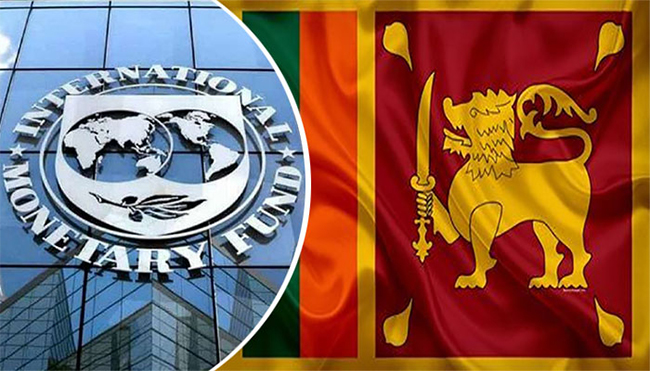IMF says increasing revenue of ‘paramount importance’ for Sri Lanka; defends VAT hike
The International Monetary Fund (IMF) says increasing state revenue is of paramount importance for Sri Lanka as the South Asian island nation continues to be an economy with ‘exceptionally low’ tax revenues.
Senior Mission Chief Peter Breuer, addressing a special virtual media briefing convened this morning (Dec.13) after the IMF Executive Board’s cleared the Extended Fund Facility (EFF)-supported program for Sri Lanka, mentioned that the country’s revenue was 8.3% of the GDP in 2022, compared to an average of other emerging market countries.
The press briefing was co-chaired by IMF’s Deputy Mission Chief Katsiaryna Svirydzenka and Resident Representative for Sri Lanka Sarwat Jahan, along with Mr. Breuer.
The Senior Mission Chief emphasized that revenue is needed for the government to provide the essential services and without such revenue it is impossible for the authorities to provide the services that the citizens expect of the government.
“Raising revenue continues to be of paramount importance in Sri Lanka. Despite all these measures that have been taken, there is still a long road ahead.”
Speaking further, Mr. Breuer said the IMF projects positive growth for Sri Lanka in 2024, adding that there are signs that all these reforms are paying off now. “But clearly, the economy is not yet out of the woods. Sustaining the reform momentum is imperative for the economy to safely emerge from the crisis.”
Regarding the upcoming increase of the Value-Added Tax (VAT), Mr. Breuer said the IMF is cognizant that VAT is not an optimal tax. He noted that despite the tax reforms implemented last year, there have been shortfalls in tax collection. “In a situation like that, one has to look into second-best options. So raising the VAT is one of those.”
Meanwhile, IMF Resident Representative for Sri Lanka Sarwat Jahan commented that regardless of the increase in VAT there are measures to help the poor and the vulnerable, adding that some of the most essential items including the ones that are consumed by the low-income households, such as fruits, vegetables, rice flour, wheat flour, are exempt from the VAT.
The IMF’s Executive Board finalized the first review on Sri Lanka’s bailout package on Tuesday (Dec.12), giving access to SDR 254 million (about USD 337 million) and bringing the total IMF disbursements thus far to SDR 508 million (about USD 670 million) out of the SDR 2.286 billion (about USD 3 billion).
In his opening remarks, Mr. Breuer said the EFF continues to support Sri Lanka’s efforts to restore macroeconomic stability and debt sustainability, safeguard financial stability, and enhance growth-oriented structural reforms.
He underscored Sri Lanka’s performance under the EFF-supported program, which is deemed ‘satisfactory’. “All quantitative performance criteria for end-June were met, except the one on expenditure arrears. All indicative targets were met, except the one on tax revenues. Most structural benchmarks were either met or implemented with delay by end-October 2023.”
The key to transitioning from stabilization to a full and swift recovery is sustaining the reform momentum and strong ownership of reforms, Mr. Breuer continued.
He said the IMF continues to encourage the authorities to further build on the hard-won gains and further advance revenue mobilization, align energy prizing with costs, strengthen social safety nets, rebuild external buffers, safeguard financial stability, eradicate corruption and enhance governance.
Commenting further, Mr. Breuer also highlighted the importance of reinforcing the revenue-based fiscal consolidation with revenue administration reforms to recover from program slippages; implementing the bank recapitalization plan and strengthening financial supervision and crisis management framework to safeguard financial sector stability; and further strengthening the social safety net and protecting social spending to safeguard the poor and vulnerable.
The Senior Mission Chief said the IMF looks forward to further engagement and collaboration with stakeholders and civil society organizations on critical reforms.
He further revealed that the second review of the EFF arrangement for Sri Lanka is expected to be completed by the end of the first half of 2024 and that an IMF delegation is slated to visit the island nation in March or April next year.
-adaderana

